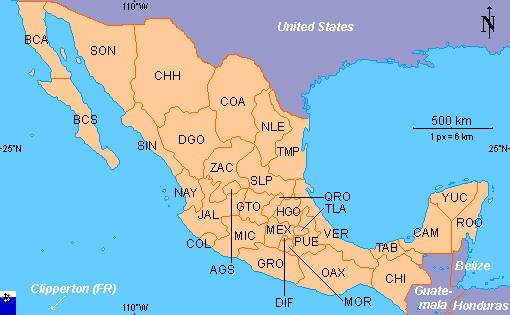
ONLY a few weeks ago Andrés Manuel López Obrador was sliding towards political oblivion. Narrowly but clearly beaten by Felipe Calderón in a presidential election in July 2006, Mr López Obrador, a left-wing populist who was once the mayor of Mexico City, organised months of protests against what he alleged was electoral fraud. His contempt for Mexico's democratic institutions scared off many of his erstwhile supporters and split his Party of the Democratic Revolution (PRD).
Now he is on his way back—and that is a problem for the president. First Mr López Obrador seized on a timid government proposal to open up parts of Mexico's declining oil industry to private investment. He has raised the bogie of “privatisation”, striking a nationalist chord with many Mexicans.
More significantly, he appears to have reasserted his grip on the PRD. Alejandro Encinas, a close ally who stood in as mayor when Mr López Obrador resigned to run for president, won a slim but seemingly decisive victory in a ballot for the party leadership held on March 16th. His opponent, Jesús Ortega, is a senator who led a moderate “new left” faction. He dismissed Mr Encinas as representing “a marginal and self-excluding left”. In a droll reversal of the presidential election, Mr Ortega cried fraud (as did his opponent).
The result showed the depth of the PRD's divisions. Assuming it hangs together, its legislators, who form the second-largest block in Congress, are likely to adopt a more combative stance towards Mr Calderón. But that might not help the party in a mid-term election due in July next year.
Full Story
Importance: President Calderon is in for some tough times with the legislative body. Before he struggled with legitimacy from the population, now he faces gridlock with Mexican congress. With Mexico in need of political reform, these new cleavages are only going to cause potential policy actions to be stuck in legislation.
Now he is on his way back—and that is a problem for the president. First Mr López Obrador seized on a timid government proposal to open up parts of Mexico's declining oil industry to private investment. He has raised the bogie of “privatisation”, striking a nationalist chord with many Mexicans.
More significantly, he appears to have reasserted his grip on the PRD. Alejandro Encinas, a close ally who stood in as mayor when Mr López Obrador resigned to run for president, won a slim but seemingly decisive victory in a ballot for the party leadership held on March 16th. His opponent, Jesús Ortega, is a senator who led a moderate “new left” faction. He dismissed Mr Encinas as representing “a marginal and self-excluding left”. In a droll reversal of the presidential election, Mr Ortega cried fraud (as did his opponent).
The result showed the depth of the PRD's divisions. Assuming it hangs together, its legislators, who form the second-largest block in Congress, are likely to adopt a more combative stance towards Mr Calderón. But that might not help the party in a mid-term election due in July next year.
Full Story
Importance: President Calderon is in for some tough times with the legislative body. Before he struggled with legitimacy from the population, now he faces gridlock with Mexican congress. With Mexico in need of political reform, these new cleavages are only going to cause potential policy actions to be stuck in legislation.






No comments:
Post a Comment